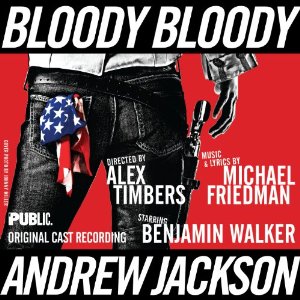SITE GUIDE
SEARCH
REVIEWS
REVIEW ARCHIVES
ADVERTISING AT CURTAINUP
FEATURES
NEWS
Etcetera and
Short Term Listings
LISTINGS
Broadway
Off-Broadway
NYC Restaurants
BOOKS and CDs
OTHER PLACES
Berkshires
London
California
New Jersey
DC
Connecticut
Philadelphia
Elsewhere
QUOTES
TKTS
PLAYWRIGHTS' ALBUMS
LETTERS TO EDITOR
FILM
LINKS
MISCELLANEOUS
Free Updates
Masthead
A CurtainUp Festival Report
The Under the Radar Festival
Being Harold Pinter Reprised, Along With 2 New ProductionsThe Belarus Free Theatre's Being Harold Pinter was one of the standouts of the Under the Radar Festival that I reviewed earlier this year (Click the title above to read). The piece is being given a second run, along with two new productions, one of which Bill Coyle hass reviewed separately. Here's the link: Discover Love. |
Shows Reviewed: Bonanza | Gob Squad's Kitchen (You've Never Had It So Good) | Your brother. Remember? | Vice-Versa | Being Harold Pinter
Bonanza
|
I am good company for myself.— A resident of Bonanza, Colorado .—
|
The action takes place as long form interviews of the residents of the abandoned Colorado gold-mining town of Bonanza, now with a total of seven residents. Above a bank of five video screens sits a scaled small model town that figures so slightly in the production that it's really not necessary, and actually somewhat distracting.
According to the program and the inhabitants, the town at one time had 6,000 inhabitants, 36 saloons and brothels, and zero churches. Despite its name, the town never experienced an actual bonanza.
One resident refers to life in Bonanza as an "existence that most people can't handle." No one receives reliable TV or radio signals. The nearest gas station is 33 miles away. The most prolific sounds in the interviews are bird calls. Literally and figuratively, the people of Bonanza exist on the fringes of society, and in some instances, of reality.
With loneliness so pervasive, superstition and ritual become natural undercurrents of daily existence. One resident, convinced that bad energy from historic settlements needs to be purged, candidly discusses her conversations with angels and elves. Another keeps her deceased husband's ashes in her car.
The people in Bonanza want to be left alone. Yet, even in a community with a handful of residents, social problems arise. Bonanza is kind of a Real World for isolated dropouts. Arguments, petty gossip, and even lawsuits exist even here.
Despite their occasional displays of exasperation with their neighbors, Berlin captures the residents' longings, too: their wishes to be understood, respected and, ultimately, accepted, if even by six other people. The underlying message of Bonanza is that human beings, despite their attempts to the contrary, are stuck with each other, for better or worse.
|
Bonanza By Berlin Directed by Berlin Cast: The residents of the town of Bonanza, Colorado, Set Design: Koen De Cueleneer, Tom Van de Oudeweetering Graphics: Gerjo Van Dam Lighting Design Designer's Name Here Sound Design: Tom De With Editor: Bart Baele Running Time: 70 minutes, no intermission The Robert Moss Theatre, 440 Lafayette Street, 3rd Floor From January 7 performance date; closing January 16; opening January 6 Performance schedule varies Reviewed by William Coyle, based on January 7 performance |
Gob Squad's Kitchen (You've Never Had It So Good)
| Can I wake up?— Bastian Trost of Gob Squad, trying to re-enact Andy Warhol's Sleep
|
All of this is done live, with the performers being filmed in black and white, behind three enormous screens. The technology is sophisticated and renders the proceedings quite beautiful.
The performers, recognizing their shortcomings, bring audience members up to replace their flailing selves. While this is an enormously scary proposition, the troupe is terrifically generous and good-natured. Not only did all three of their audience member victims survive, they actually thrived. Each one succeeded in making new art on the spot.
With this production, Gob Squad seems to be reminding us that artists can't and shouldn't try to re-create the past; we can only create new moments. And, while icons need to be revered, their legend must be tempered by the acknowledgement that life, and art, move on.
Watch for Gob Squad's return. If this production is any indication you won't want to miss their next one.
|
Gob Squad's Kitchen (You've Never Had It So Good) By Gob Squad Directed by Gob Squad Cast: Johanna Freiburg, Sean Patten, Berit Stumpf, Sarah Thom, Bastain Tropst, Simon Will Set Design: Chasper Bertschinger Video: Miles Chalcraft Sound Design: Jeff McGrory Stage Manager: Sophia Simitzis, Tina Pfurr Running Time: 80-120 minutes, no intermission LaMaMa, 66 East 4th Street, www.lamama.org From January 8 performance date; closed January 8 ; opening date January 6 Reviewed by William Coyle, based on January 8 performance |
|
You are the video star. — Zach Oberzan, singing "Video Killed the Radio Star" by The Buggles .—
|
Exactly why they do this is not entirely clear, but it's definitely some kind of bonding thing. We learn that the brothers have come from a fractured family and both suffer from depression. And why not put all that old footage to some use? So, we wind up seeing much more of the original Kickboxer than anyone should be subjected to, and then the two re-created versions of the brothers. In the Youtube age, this stuff isn't really that original any more, though, in the early 1990s the brothers Oberzan were no doubt way ahead of their times.
Unfortunately, the production drips with sentimentality and soon becomes tedious. Some in the audience might find part of the tear-jerking finale reminiscent of a famous Wonder Years episode.
Zachary Oberzan is a devotee of action films and recreates them in various ways. A member of the Nature Theater of Oklahoma, he is the creator of Rambo Solo and has recently recreated First Blood in his living room.
At its heart Your brother. Remember? is a recognition of failed aspirations and a celebration of the future. But its narrow conceit runs out of gas early, and never really kicks back into gear.
|
Your brother. Remember? By Zachary Oberzan Directed by Zachary Oberzan Assistant Director: Nicole Schuchardt Cast: Zachary Oberzan, Gator Oberzan Lighting Design: Thomas Barcal Sound Design: Designer's Name Here Running Time: 60 minutes, no intermission Dixon Place, 161A Chrystie Street From January 7 performance; closing January 16 ; opening January 5 Performance schedule www.undertheradarfestival.com Reviewed by William Coyle, based on January 7 performance |
|
How do you not fall back into stupidity, vulgarity and heavyhandedness?— ildi ! eldi collective
|
I know it's early in the year, but I predict that Vice Versa will be at the top of my list for worst plays of 2011. Mercifully, it lasts less than an hour.
Based on the work of Will Self, the play picks as his subject a man who mysteriously grows a vagina on the back of his knee and the physician who grows increasingly attracted to him. Though admittedly crass, this could be hilarious in the right hands. The French ildi! eldi collective are not those hands.
The actors repeat the same scenario verbatim, gradually revealing more of the big secret, with each incarnation. This allows them to repeat the same precious physical comedy routine that gets the laughs. When the secret is finally revealed, though, it's not all that funny anymore. With silly asides and gratuitous repetitions, the collective calls this "slapstick," but it's not. The jokes, perhaps lost in translation into English, are silly and embarrassing. The harder they try, the more desperate the production becomes. Frankly, I'm perplexed as to how this production even made it into the Under the Radar lineup.
|
Vice Versa Adapted by ; ildi ! eldi collective, based on the work of Will Self Production: Guilhaine Albert Cast: Sophie Cattani, Antoine Oppenheim, Francois Sabourin Stage Manager: Ludovic Bouaud Running Time: 55 minutes, no intermission Dixon Place, 161A Chrystie Street From January 8 performance; closing January 15; opening January 6 Performance schedule www.undertheradarfestival.com Reviewed by William Coyle, based on January 8 performance |
|
I think it is the responsibility of a citizen of any country to say what he thinks.— Harold Pinter
|
The only video featured in the Belarus Free Theatre's Being Harold Pinter are supertitles in English. Though most in the audience will have to consult those supertitles frequently, the play's powerful political action will not be lost on them.
Near the beginning of the play, a siren blares and then fades away. One of the characters states ominously that there is always a siren for someone, somewhere. (This sends chills up the spine, particularly in light of the recent announcement by Belarus that it might seize the three-year old child of a jailed presidential opposition candidate). The members of this fearless troupe, who had difficulty leaving Belarus to participate in the Under the Radar festival, are clearly in daily, mortal danger.
Using some of Harold Pinter's well known (The Homecoming) and some more obscure plays like Mountain Language, and his well-worn theme of power obsession, the Belarus Free Theatre demonstrates, with fierce valor, life in a dictatorship. There are tortures, rapes, and murders — all performed symbolically or otherwise, right in front of us.
The set is simple, consisting of four chairs in each corner. Props are introduced as needed. Despite the production's visual simplicity (the use of simple plastic tarps), the troupe pulls off one of the most stunning visual spectacles, to demonstrate political suffocation and lack of personal freedom that I have seen in recent years.
Though it helps to be familiar with Pinter's works, it's not necessary to receive the punch of the play's brutal impact. Sometimes it feels as if Pinter's words are being massaged to fit the play's theme, and that can be distracting. Despite this minor quibble, Being Harold Pinter is highly recommended for those wishing to experience political theater at its most bracing.
|
Being Harold Pinter By Vladimir Scherban, based on the works of Harold Pinter Directed by Vladimir Scherban Cast: Nikola Khalezin, Pavel Haranidski, Yana Rusakevich Alh Sidorchyk, Irene Iarochevitch, Dzianis Tarasenka Maryna Yurevich Stage Managers: Aliaksei Shymevich, Laur Biarzhanin, Artsem Zhaliazniak Running Time: 75 minutes, no intermission LaMaMa, 74A East 4th Street, www.lamama.org From January 8 performance date; closing January 16; opening January 5 Performance schedule www.undertheradarfestival.com Reviewed by William Coyle, based on January 8 performance |
|
REVIEW FEEDBACK Highlight one of the responses below and click "copy" or"CTRL+C"
Paste the highlighted text into the subject line (CTRL+ V): Feel free to add detailed comments in the body of the email. . .also the names and emails of any friends to whom you'd like us to forward a copy of this review. Visit Curtainup's Blog Annex For a feed to reviews and features as they are posted add http://curtainupnewlinks.blogspot.com to your reader Curtainup at Facebook . . . Curtainup at Twitter Subscribe to our FREE email updates: E-mail: esommer@curtainup.comesommer@curtainup.com put SUBSCRIBE CURTAINUP EMAIL UPDATE in the subject line and your full name and email address in the body of the message. If you can spare a minute, tell us how you came to CurtainUp and from what part of the country. |

Slings & Arrows-the complete set
You don't have to be a Shakespeare aficionado to love all 21 episodes of this hilarious and moving Canadian TV series about a fictional Shakespeare Company






